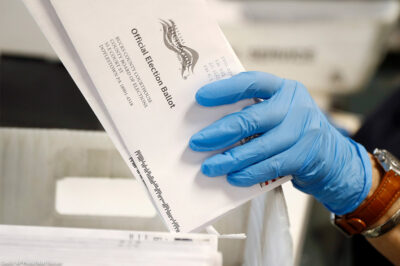Signature Match Laws Disproportionately Impact Voters Already on the Margins


We sign things all the time – to pay for groceries with a credit card or end a letter to a friend, for example. Rarely do our signatures come under scrutiny. Yet, a number of states are denying people the right to vote because the signature on their absentee ballot – and sometimes even on their application for a ballot itself– doesn’t exactly match their signature on the voter registration rolls. And in many cases, the state does not even tell the affected voter that their ballot has been rejected.
Ballots being rejected because of a perceived signature mismatch heavily affects voters already at the margins — people with disabilities, trans and gender-nonconforming people, women, people for whom English is a second language, and military personnel.
Over the past year, the ACLU has brought a series of lawsuits across the country which challenge signature matching processes that result in the unconstitutional disenfranchisement of eligible voters. In August, we won a case in New Hampshire on the behalf of citizens whose ballots were discarded without their knowledge, who did not even know they had been disenfranchised until the ACLU of New Hampshire called to tell them. In April, we were victorious in California state court on the same issue. Earlier this fall, in Michigan, when signatures were being counted for ballot initiatives, we sued for the same reason. And most recently, the ACLU sued the state of Georgia for rejecting close to 600 absentee ballots for suspected signature mismatches. The ACLU won a temporary restraining order in that case on October 24.
A voter’s signature can change for many reasons. Voters who live with a disability, including many elderly voters, are more likely to vote absentee, due to accessibility issues. It is also more likely that their signature looks different than it did when they first registered to vote. Some degenerative diseases or disabilities with periodic symptoms do not affect a voter at the time of registration but may result in tremors or other symptoms that change the way someone signs their name.
People with eyesight loss often have signatures that change overtime. Our client in New Hampshire, Mary Saucedo, for example, is 95 years old and legally blind. She votes with the help of her husband and cannot sign the same way twice. There are many people like Mrs. Saucedo, who for a variety of reasons, rely on another person to help them sign their ballot envelope – which is legal, and an important component of making voting accessible for people living with disabilities.
Signature matching tends to affect other vulnerable groups as well. People who are transgender may have a different signature, and use a different name than when they initially registered to vote. Due to a plethora of legal, financial and societal barriers, legal name changes are not always possible. If they sign with a name that does not match the name in their voter registration file, or attempt to recreate their old signature, it may trigger a signature mismatch.
Women, who more often change their name upon marriage or divorce, are also affected. The significance of a hyphenated last name or the presence or absence of a spouse’s last name can be an important part of a person’s identity. People who do not speak or write English as their first language and have had to learn to sign their name in a different language are another group impacted. And members of the military and voters living overseas who vote by absentee ballot are more likely to experience signature match issues simply by dint of relying on the absentee voting process.
The U.S. Constitution protects voters’ due process rights. The concept of due process of law requires that all citizens be given fair notice and opportunity to be heard before having one’s rights taken away. The right to vote is a precious one that cannot be stolen from voters without due process.
Disenfranchising a voter should not be done lightly. An official without training in signature or handwriting analysis should not reject a voter’s application or ballot until they notify the voter and give them an opportunity to fix the issue. Without proper notice and opportunity to cure, voters, especially voters with disabilities, elderly voters, trans voters, women voters, ESL voters and military voters, are susceptible to being unfairly excluded from the democratic process.
Absentee ballots are intended to make voting more accessible for qualified voters, not to disenfranchise marginalized populations.



